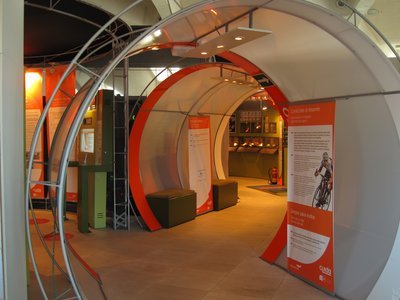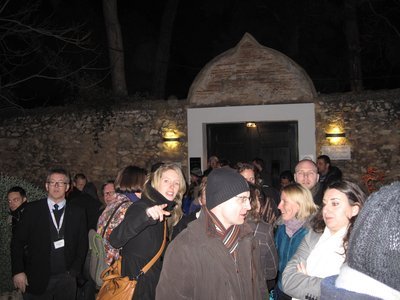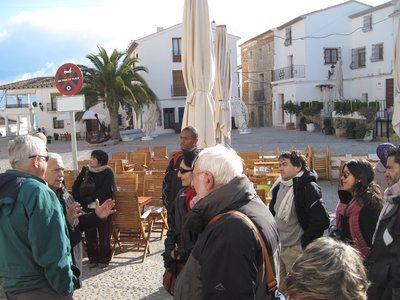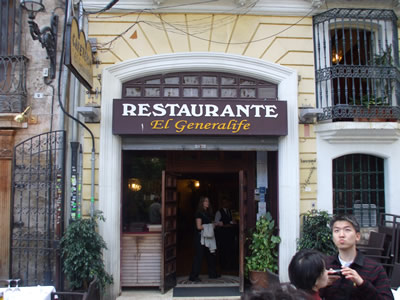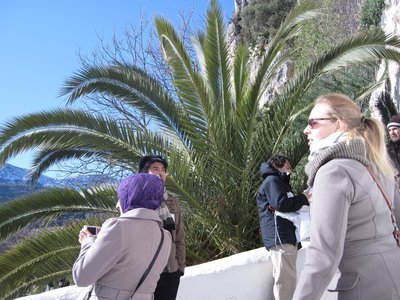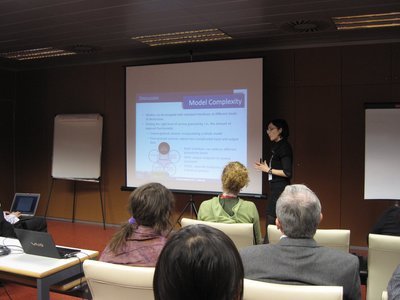VEHICULAR ANALYTICS 2024 - The First International Conference on Vehicular Systems
November 17, 2024 - November 21, 2024
VEHICULAR ANALYTICS 2024: Call for Papers
Onsite and Online Options: In order to accommodate various situations, we are offering the option for either physical presence or virtual participation (pdf slides or pre-recorded videos).
All traffic (terrestrial, aerial, maritime, underwater) has started experiencing hybrid vehicles (manned and unmanned) sharing the same infrastructure and facing similar situations. Moreover, both kinds of vehicles are exposed to critical and sudden events (incidents, crowds, pedestrians) as well as long planned decisions (paths, speed, lights, predictive events). It is essential that real-time information is shared by traffic vehicles in a secure and trusted way, regardless of whether they are autonomous or operated by a human.
Artificial Intelligence (AI)-based decisions, Datasets and Deep learning-based traffic patterns, 5G/6G-based communication, Blockchain-based security, Cloud-based computing, and Cognitive approaches have led to advanced driving assistance systems, guidance, and safety use of the common transportation infrastructure.
VEHICULAR ANALYTICS 2024 inaugurates a series of events dedicated to analyzing solutions and challenges concerning dedicated frameworks, architectures, applications, software/hardware, tools and apps, experimental systems, and lessons learned.
We solicit both academic, research, and industrial contributions. We welcome technical papers presenting research and practical results, position papers addressing the pros and cons of specific proposals, such as those being discussed in the standard fora or in industry consortia, survey papers addressing the key problems and solutions on any of the above topics short papers on work in progress, and panel proposals.
Industrial presentations are not subject to the format and content constraints of regular submissions. We expect short and long presentations that express industrial position and status.
Tutorials on specific related topics and panels on challenging areas are encouraged.
The topics suggested by the conference can be discussed in term of concepts, state of the art, research, standards, implementations, running experiments, applications, and industrial case studies. Authors are invited to submit complete unpublished papers, which are not under review in any other conference or journal in the following, but not limited to, topic areas.
All topics and submission formats are open to both research and industry contributions.
VEHICULAR ANALYTICS 2024 conference tracks:
Hybrid (manned/unmanned) vehicular systems
Manned and unmanned vehicular traffic coordination
Artificial intelligence and data analytics in hybrid transportation
Aeronautical hybrid vehicles
Terrestrial/Sea hybrid transportation
Underwater hybrid transportation
Traffic control/coordination systems
Traffic information collection and dissemination
Integration of manned/unmanned transportation systems
Safety in transportation systems
Analytical and simulation techniques
Experimental systems and field operational testing
Recent standardization efforts and challenges
Manned/Unmanned traffic communication systems
Vehicle-to-Vehicle (V2V) communication (including 5G/6G)
Vehicle-to-Infrastructure (V2I), Vehicle-to-Grid (V2G) communications
Embedded (GPS) vs Tethered connections via smartphones
V2X communications and Internet of Vehicles (IoV) standards
Intra-vehicle communications (mini-Datacenters and car internal sensors)
Vehicle-to-Internet communications
Cloud/Edge/Fog computing-based coordination
Car mini-Datacenter updated via car sensors (car-Internet of Things - IoT)
Cloud-based vehicular transportation systems
Sensor-based traffic coordinating systems
Cloudlets-based technology for mobile devices
Human-Artificial Intelligence (AI) coordination systems via V2P
Vehicle-to-Pedestrian (V2P) communication via Cellular Vehicle to Everything (V-V2X)
Manned/Unmanned vehicle communication quality
Connected services and mobility coordination
Adaptive video-streaming dissemination
Wireless sensing communication
Secure information transfer in V2V communication
Streaming content from a vehicular cloud
Security and data protection
Trust within Internet-of-Vehicles (IoV)
Advanced assistance for Manned/Unmanned Vehicles
A priori map data
Multi-lane vehicular traffic models
Traffic signs-based fog density models
Social interaction and signaling
Collision avoidance systems
Congestion and awareness control
Driving in crowded scenes
Traffic signal adaptive routing
Prevent/Predict red-light running violations
Long-term trajectory predictions
Speed harmonization
Delay estimation
Manned/Unmanned ground vehicle coordination
Free space detection
Autonomous vehicle in urban environments
Roadside sensors
Automated vehicle operation
Manned/unmanned vehicular regulations
Optimized trajectory
Manned/Unmanned driving considerations
Advanced vehicle safety systems
Driving assistance systems
Sensing, vision, and perception
Driving reactions and predictions
Driving tracking systems
Visual warnings and accident prevention
Head-up display
Motion planning
Navigation tracking
Detection/avoidance of urban traffic hotspots
Human factors in urban traffic
Rear-view pedestrian detection
Pedestrian walking activity recognition and prediction
Pedestrian and bicyclists safety
Evacuation dynamics
Sparse and noisy smartphone location data
Carpooling
Bottlenecks in massive crowd flow networks
Mobility and vehicular traffic models
Driving and urban planning
Mini-drones and taxi-drones
Coordination of terrestrial vehicles and drones
Carsharing and charging stations
Real-time learning for incident prediction
Heavy-duty commercial vehicles
Freeway traffic management
Energy and sustainability
Pollution models
Energy-efficient vehicular systems
Common energy supply stations for manned/unmanned vehicles
Energy management for plug-in hybrid electric vehicles
Green vehicular communication
Deadlines:
Submission | Sep 16, 2024 |
Notification | Oct 10, 2024 |
Registration | Oct 20, 2024 |
Camera ready | Oct 25, 2024 |
Deadlines differ for special tracks. Please consult the conference home page for special tracks Call for Papers (if any).
INSTRUCTION FOR THE AUTHORS
Authors of selected papers will be invited to submit extended versions to one of the IARIA Journals.
Publisher: XPS (Xpert Publishing Services)
Archived: ThinkMindTM Digital Library (free access)
Prints available at Curran Associates, Inc.
How to submit to appropriate indexes.
Only .pdf or .doc files will be accepted for paper submission. All received submissions will be acknowledged via an automated system.
Contribution types
- regular papers [in the proceedings, digital library]
- short papers (work in progress) [in the proceedings, digital library]
- ideas: two pages [in the proceedings, digital library]
- extended abstracts: two pages [in the proceedings, digital library]
- posters: two pages [in the proceedings, digital library]
- posters: slide only [slide-deck posted on www.iaria.org]
- presentations: slide only [slide-deck posted on www.iaria.org]
- demos: two pages [posted on www.iaria.org]
FORMATS
Only .pdf or .doc files will be accepted for paper submission. All received submissions will be acknowledged via an automated system.
Final author manuscripts will be 8.5" x 11", not exceeding 6 pages; max 4 extra pages allowed at additional cost.
Helpful information for paper formatting for MS Word can be found here.
There is a community provided LaTeX template: the CTAN package iaria (with full IARIA formatting rules, including IARIA citation style, but for providing citation style it is tightly bound to pdflatex+biblatex+biber). In addition, there is also iaria-lite (not bound to pdflatex+biblatex+biber, but compatible with any TeX stack; thus, it cannot provide the IARIA citation formattings, but only the titlepage and content-related IARIA formatting rules). Based on the iaria package, there is a minimal working example as Overleaf template. When you are using the LaTeX templates, please still adhere to the additional editorial rules.
Slides-based contributions can use the corporate/university format and style.
Your paper should also comply with the additional editorial rules.
Once you receive the notification of contribution acceptance, you will be provided by the publisher an online author kit with all the steps an author needs to follow to submit the final version. The author kits URL will be included in the letter of acceptance.
We would recommend that you should not use too many extra pages, even if you can afford the extra fees. No more than 2 contributions per event are recommended, as each contribution must be separately registered and paid for. At least one author of each accepted paper must register to ensure that the paper will be included in the conference proceedings and in the digital library, or posted on the www.iaria.org (for slide-based contributions).
CONTRIBUTION TYPE
Regular Papers (up to 6-10 page article -6 pages covered the by regular registration; max 4 extra pages allowed at additional cost- ) (oral presentation)
These contributions could be academic or industrial research, survey, white, implementation-oriented, architecture-oriented, white papers, etc. They will be included in the proceedings, posted in the free-access ThinkMind digital library and sent for indexing. Please submit the contributions following the instructions for the regular submissions using the "Submit a Paper" button and selecting the appropriate contribution type. 12-14 presentation slides are suggested.
Short papers (work in progress) (up to 4 pages long) (oral presentation)
Work-in-progress contributions are welcome. These contributions represent partial achievements of longer-term projects. They could be academic or industrial research, survey, white, implementation-oriented, architecture-oriented, white papers, etc. Please submit the contributions following the instructions for the regular submissions using the "Submit a Paper" button and selecting the contribution type as work in progress. Contributors must follow the conference deadlines, describing early research and novel skeleton ideas in the areas of the conference topics. The work will be published in the conference proceedings, posted in the free-access ThinkMind digital library and sent for indexing. For more details, see the Work in Progress explanation page. 12-14 presentation slides are suggested.
Ideas contributions (2 pages long) (oral presentation)
This category is dedicated to new ideas in their very early stage. Idea contributions are expression of yet to be developed approaches, with pros/cons, not yet consolidated. Ideas contributions are intended for a debate and audience feedback. Please submit the contributions following the instructions for the regular submissions using the "Submit a Paper" button and selecting the contribution type as Idea. Contributors must follow the conference deadlines, describing early research and novel skeleton ideas in the areas of the conference topics. The work will be published in the conference proceedings, posted in the free-access ThinkMind digital library and sent for indexing. For more details, see the Ideas explanation page. 12-14 presentation slides are suggested.
Extended abstracts (2 pages long) (oral presentation)
Extended abstracts summarize a long potential publication with noticeable results. It is intended for sharing yet to be written, or further on intended for a journal publication. Please submit the contributions following the instructions for the regular submissions using the "Submit a Paper" button and selecting the contribution type as Extended abstract. Contributors must follow the conference deadlines, describing early research and novel skeleton ideas in the areas of the conference topics. The work will be published in the conference proceedings, posted in the free-access ThinkMind digital library and sent for indexing. 12-14 presentation slides are suggested.
Posters (paper-based, two pages long) (oral presentation)
Posters are intended for ongoing research projects, concrete realizations, or industrial applications/projects presentations. The poster may be presented during sessions reserved for posters, or mixed with presentation of articles of similar topic. A two-page paper summarizes a presentation intended to be a POSTER. This allows an author to summarize a series of results and expose them via a big number of figures, graphics and tables. Please submit the contributions following the instructions for the regular submissions using the "Submit a Paper" button and selecting the contribution type as Poster Two Pages. Contributors must follow the conference deadlines, describing early research and novel skeleton ideas in the areas of the conference topics. The work will be published in the conference proceedings, posted in the free-access ThinkMind digital library and sent for indexing. 8-10 presentation slides are suggested. Also a big Poster is suitable, used for live discussions with the attendees, in addition to the oral presentation.
Posters (slide-based, only) (oral presentation)
Posters are intended for ongoing research projects, concrete realizations, or industrial applications/projects presentations. The poster may be presented during sessions reserved for posters, or mixed with presentation of articles of similar topic. The slides must have comprehensive comments. This type of contribution only requires a 8-10 slide-deck. Please submit the contributions following the instructions for the regular submissions using the "Submit a Paper" button and selecting the contribution type as Poster (slide-only). The slide-deck will be posted, post-event, on www.iaria.org.
8-10 presentation slides are suggested. Also a big Poster is suitable, used for live discussions with the attendees, additionally to the oral presentation.
Presentations (slide-based, only) (oral presentation)
These contributions represent technical marketing/industrial/business/positioning presentations. This type of contribution only requires a 12-14 slide-deck. Please submit the contributions following the submission instructions by using the "Submit a Paper" button and selecting the contribution type as Presentation (slide-only). The slide-deck will be posted, post-event, on www.iaria.org.
12-14 presentation slides are suggested.
Demos (two pages) [posted on www.iaria.org]
Demos represent special contributions where a tool, an implementation of an application, or a freshly implemented system is presented in its alfa/beta version. It might also be intended for thsoe new application to gather the attendee opinion. A two-page summary for a demo is intended to be. It would be scheduled in special time spots, to ensure a maximum attendance from the participants. Please submit the contributions following the submission instructions by using the "Submit a Paper" button and selecting the contribution type as Demos. The Demos paper will be posted, post-event, on www.iaria.org.
Tutorial proposals
Tutorials provide overviews of current high interest topics. Proposals should be for 2-3 hour long. Proposals must contain the title, the summary of the content, and the biography of the presenter(s). The tutorial slide decks will be posted on the IARIA site.
Please send your proposals to tutorial proposal
Panel proposals
The organizers encourage scientists and industry leaders to organize dedicated panels dealing with controversial and challenging topics and paradigms. Panel moderators are asked to identify their guests and manage that their appropriate talk supports timely reach our deadlines. Moderators must specifically submit an official proposal, indicating their background, panelist names, their affiliation, the topic of the panel, as well as short biographies. The panel slide deck will be posted on the IARIA site.
Please send your proposals to panel proposal
